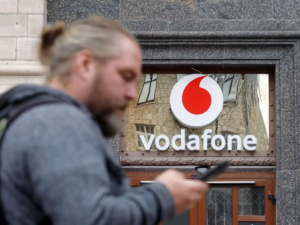Shortly before the turn of the year, the bicycle world was surprised by new insolvency proceedings. It hit the traditional German manufacturer Prophete. Now new details have become known as to how the company went bankrupt.

Now there are new details.
They are regularly on sale at large supermarket chains such as Aldi or Lidl: e-bikes and classic bicycles from the German manufacturer Prophete. For a few days, however, the atmosphere at the headquarters in Rheda-Wiedenbrück in North Rhine-Westphalia has been tense. Because Prophete surprisingly had to file for bankruptcy at the end of last year . The manufacturer, which has a tradition going back more than 100 years, has now given the responsible insolvency administrator a more detailed explanation of the reasons. And the search for investors is also making good progress.
SEVERAL PROSPECTS FOR INSOLVENT BICYCLE MANUFACTURER PROPHETE
Several parties have already signaled an interest in Prophete. “I am confident that we will be able to find a sustainable investor solution for Prophete,” says the provisional insolvency administrator Manuel Sack from the nationwide law firm Brinkmann & Partner . It is already planned to initiate a broad international market approach and to hold initial concrete talks with potential financiers in the near future. It is planned to complete the sales process by the end of February. Until then, it will be ensured that the approximately 460 employees will receive their salary.
There are also new insights into the reasons why Prophete, one of the largest bicycle manufacturers in Germany, was able to slide into insolvency. Insolvency administrator Sack explains: “On November 25 last year, Prophete was the victim of a cyber attack. The result of the attack was that no production, invoicing or deliveries could take place for around three weeks. Nobody wanted to bear the resulting losses anymore.”
The management immediately reported the hacker attack to the State Criminal Police Office and the responsible data protection authority. Referring to the ongoing investigations and investigations, Prophete does not want to reveal whether a ransom demand for hijacked computer systems was part of the hacker attack.
FINANCIAL PROBLEMS APPARENTLY EXISTED BEFORE THE HACKER ATTACK
Apparently, there was a certain financial imbalance at the medium-sized family business even before the hacker attack. “There were significant problems in procurement, which in turn had an impact on sales and turnover,” explains Sack. “Certain components for the completion of the bicycles, which mainly come from suppliers in the Far East, were not available on time and in insufficient quantities.” In addition, high inventories would have caused additional costs.
Against this background, the hacker attack could only have accelerated the impending insolvency of Prophete. However, the case also shows that companies need to spend more money than ever to protect their own computer systems. Because the malicious scheme of hackers hijacking servers or computers and only releasing all the content stored on them for a kind of ransom has also affected completely different companies. For example the energy provider Entega or the social service Caritas . The University of Duisburg-Essen also had to deal with similar problems last year.


